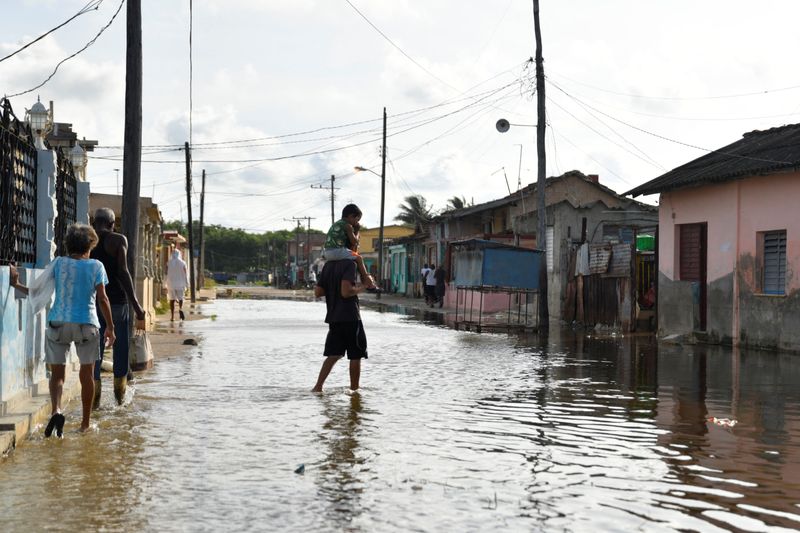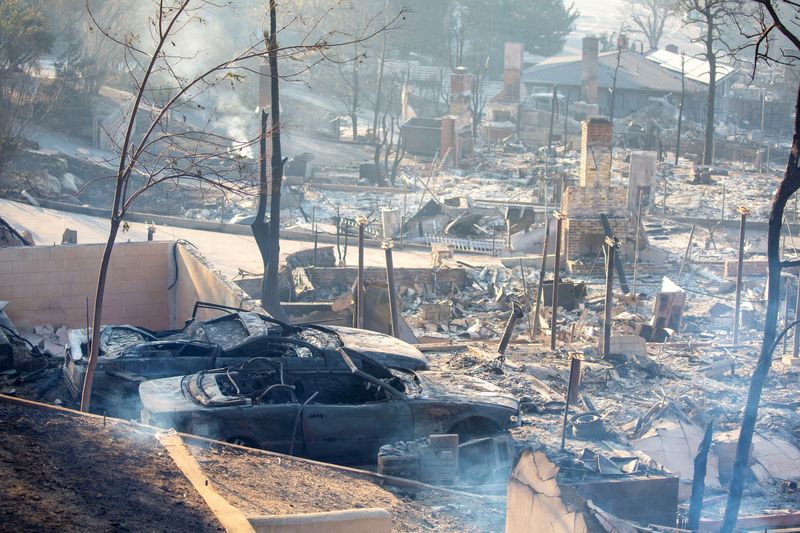By Carolyn Cohn and Noor Zainab Hussain
LONDON (Reuters) – Hurricane Milton could result in losses of up to $100 billion for the global insurance industry, creating a surge in 2025 reinsurance prices that could boost some insurance companies’ shares, analysts said on Wednesday.
The Category 4 hurricane is expected to make landfall on the Gulf Coast of Florida late on Wednesday or early Thursday. It is potentially one of the most destructive to hit the region, which is recovering from Hurricane Helene less than two weeks ago.
Insured losses from Milton could range from $60 billion to $100 billion if the hurricane makes direct landfall in the densely populated area of Tampa, analysts at Morningstar DBRS said.
A loss of $100 billion would put Milton on par with Katrina in 2005, they added, saying that insured losses would likely be “substantial but not catastrophic”.
Katrina caused the largest insured loss from a hurricane.
The second-largest loss came from Ian, which hit Florida in 2022 and led to losses of around $60 billion.
RBC analysts estimated Milton would cause similar losses to Ian that should be “very manageable” for the insurance sector.
Analysts at Jefferies estimated a mid-double-digit billion-dollar insured loss would follow a major hurricane impact in one of Florida’s most heavily populated regions.
“A 1-in-100-year event is estimated by some to result in $175 billion in losses for landfall in the Tampa region, and $70 billion in losses in the Fort Myers region,” they wrote in a note, outlining an extreme scenario.
S&P analysts noted on Wednesday the scope of damages “remains highly uncertain” but that it could match the $60 billion caused by Ian in 2022.
Hurricane Milton could “fully exhaust” many primary insurers’ 2024 catastrophe budgets, the S&P analysts wrote in a note.
INDUSTRY RESPONSE
Insurers and reinsurers – who insure the insurers – have responded to rising losses from natural catastrophes, which scientists say are being exacerbated by climate change, by raising rates and excluding higher-risk business.
“Better reinsurance contract terms, broader earnings diversification and bigger reserve buffers should put the sector in better stead than before,” the RBC analysts said in a note.
Shares in global reinsurers Swiss Re (OTC:SSREY) and Munich Re and in Lloyd’s of London players Beazley, Hiscox and Lancashire have fallen this week. Swiss Re, Munich Re and Beazley have been trading at record highs in recent weeks following strong profits.
“It’s only a matter of time before shares regain lost ground as prospects of harder pricing at the subsequent (policy) renewals set in,” RBC added.
Reinsurers fix prices for many insurance contracts on Jan. 1.

Analysts at Peel Hunt said on Wednesday that a major hurricane making landfall across Tampa Bay and travelling west across the Florida Peninsula would be similar to a realistic disaster scenario set out by Lloyd’s earlier this year, which projected a $134-billion loss for the insurance sector.
Lloyd’s maintains a set of mandatory realistic disaster scenarios to stress-test both individual syndicates and the market as a whole. The event scenarios are regularly reviewed to ensure they represent material catastrophe risks.











